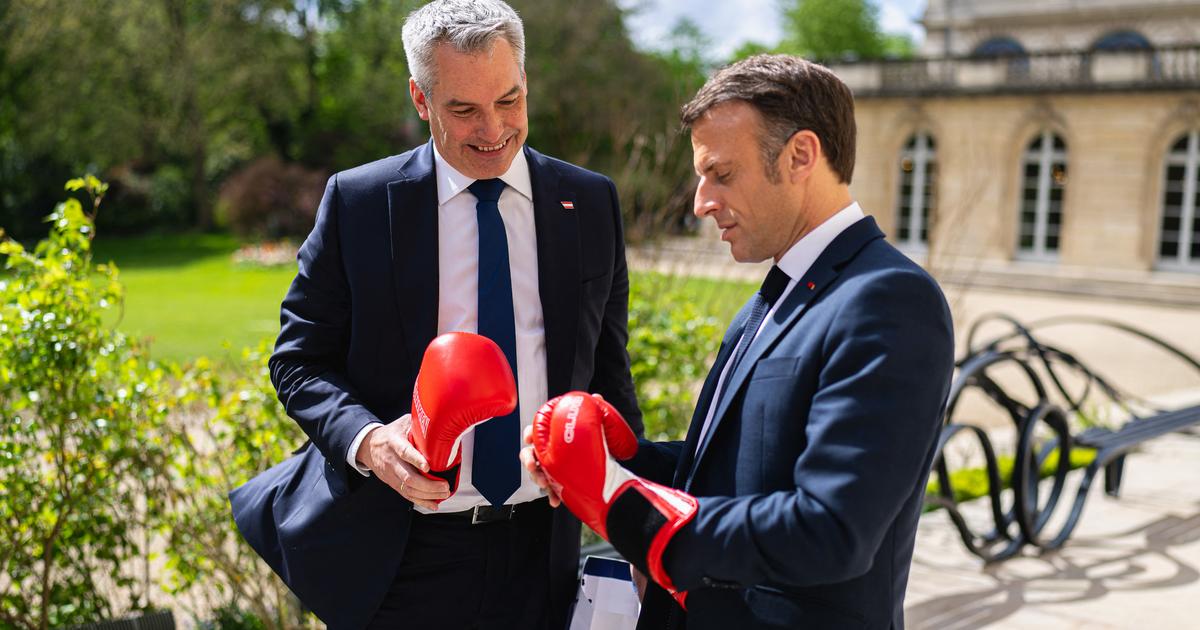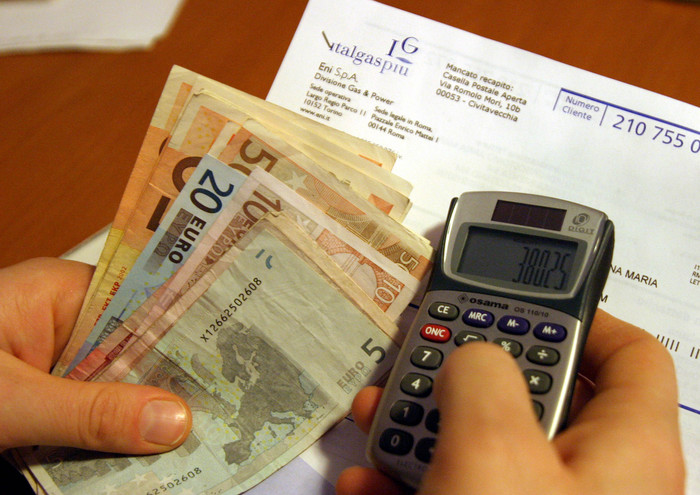Vaccination obligation in Austria fixed: Chancellor Nehammer finds penalties “very high” – and gets criticism from the police
Created: 01/18/2022 10:53 am
It's a done deal: compulsory vaccination for Austria is coming.
The government has now announced the details – they should apply from February.
Police are resisting planned compulsory vaccination checks.
In Austria, the obligation to vaccinate against the corona virus is approaching.
The police are dissatisfied with the vaccination control tasks (see update January 18, 10 a.m.).
The draft law provides for three phases – those who are not vaccinated face drastic penalties (see update January 17, 9:55 a.m.).
Update from January 18, 10
a.m.: Vaccinated or unvaccinated?
From March, unvaccinated persons in Austria face a fine of 600 euros for the first violation (see also the update of January 17).
The police should check the vaccination status at every official act.
Violent criticism is now coming from police unionists.
The two trade unionists Hermann Greylinger (FSG) and Werner Herbert (AUF) demanded that the vaccination obligation should be monitored mainly by officials from the health authorities on Tuesday in the Ö1 “Morgenjournal”.
"What happens if those affected never pay in?" Police unionists criticize vaccination control tasks
“It cannot be that it is always just dumped on the colleagues,” said Greylinger, chairman of the Social Democratic Unionists (FSG) faction.
He was skeptical about the usefulness of the controls.
"What happens if those affected never pay in?" The police have to do a job that "is useless and pointless, we oppose that," Greylinger said.
The police are used for an "excessive control activity" and "used inappropriately for political purposes", also criticized the chairman of the blue police union, AUF, Herbert.
Even the fact that plainclothes police officers go on patrol to carry out the 2G checks in the retail trade bothers the trade unionist.
It was "probably unique" that "normal police officers in civilian clothes monitor the shopping habits of the Austrian population," said Herbert on Ö1, which he had never experienced in 40 years of service.
Vaccination obligation in Austria fixed: Three phases planned - Chancellor Nehammer finds penalties "very high"
Update from January 17, 9:55 a.m
.: The
draft
law for compulsory vaccination against the
corona virus
in Austria is in place. The obligation to vaccinate "should not be driving over it," said Chancellor Karl Nehammer (ÖVP) in the ZIB2 on Sunday. The government is sticking to the introduction of compulsory vaccination. "By vaccinating, we can prevent our freedom from being further restricted," emphasized Nehammer in the ZIB2 interview. In his opinion, the obligation to vaccinate is “not a quick fix”. People should now have the chance to be vaccinated.
The chancellor is optimistic that the law will be passed in accordance with the constitution. Everyone worked on it to the best of their knowledge and belief. "But I can't rule out anything, that would also be insulting to the Constitutional Court," said Nehammer. In contrast to the original plan, vaccination will now only apply to people aged 18 and over.
"I think the penalties are very high," said Nehammer.
"A first violation of up to 600 euros is actually a lot of money, 2,400 euros a year, so for 99 percent of Austrians that is actually a high amount," continues Nehammer.
"I would prefer it if we didn't have to punish at all, simply because the vaccination rate is so high that it's not necessary.
We see that there is a need for incentives to get vaccinated.” The Chancellor refers to the phase model that was developed for precisely this reason.
The aim is still to get people to vaccinate and not to punish them, so everyone can be released from punishment two weeks after the vaccination penalty order has been issued.
Vaccination obligation in Austria - this is what the phase model looks like
Phase 1
: In the so-called starting phase - from the beginning of February - the vaccination should apply.
The law is passed by the National Council and the Federal Council and countersigned by the Federal President.
Phase 2
: From March 16th, the obligation to vaccinate is considered a control offence.
After an initial phase of six weeks, penalties are imposed.
The first violation is subject to a penalty of EUR 600 (in the abbreviated procedure) to EUR 3,600 (in the ordinary procedure).
Phase 3
: A date for vaccination is set by prescription.
Unvaccinated people will receive a letter asking them to be vaccinated.
The third phase comes into force when it is epidemiologically necessary.
Who is vaccinated in Austria?
Vaccination is compulsory in Austria for everyone over the age of 18.
Originally, it was intended to apply to everyone over the age of 14 - i.e. with criminal responsibility.
Pregnant women and people who cannot be vaccinated for medical reasons are exempt from compulsory vaccination in Austria.
However, these are very few people.
In addition to medical officers, special outpatient clinics and doctors should also determine this.
The exceptions should be entered in the vaccination register.
Austria's chancellor fixes mandatory vaccinations - those who are not vaccinated face hefty ads and fines
First report from January 16, 2022
Vienna/Munich – The compulsory vaccination for Austria is coming.
The government of neighboring Germany presented the corresponding draft law on Sunday (January 16).
The compulsory vaccination against the corona virus for adults over the age of 18 should come into force as planned at the beginning of February, but in a transitional phase until mid-March there should not yet be any penalties for the unvaccinated.
There should be exceptions to the vaccination requirement for pregnant women and for people who cannot be vaccinated for medical reasons.
Federal Chancellor Karl Nehammer stated: "We will decide on compulsory vaccination as planned." Nehammer presented the details of the project with Constitutional Minister Karoline Edtstadler and Health Minister Wolfgang Mückstein to journalists in Vienna.
Vaccination for young people between the ages of 14 and 17 is voluntary
Vaccination should remain voluntary for young people between the ages of 14 and 17.
This is what the draft law, on which the governing parties ÖVP and Greens have agreed with the social democratic SPÖ and the liberal Neos, provides for.
Originally, the government only wanted to exempt children under the age of 14 from compulsory vaccination.
The government is sticking to the starting date at the beginning of February, although the technical recording of the exceptions in the national vaccination register will not be possible until April at the earliest.
After the transitional phase until mid-March, in which all households are to be informed in writing about the measure, the plan is to make vaccination a so-called control offence.
For example, anyone who is unable to present proof of vaccination at a traffic check must expect to be reported and fined between 600 and 3,600 euros.
The compulsory vaccination law is to be passed by the Austrian parliament on Thursday.
The ÖVP and the Greens could pass the draft with a simple majority.
With the involvement of the SPÖ and Neos, the government is counting on broader approval.
Only the right-wing populist FPÖ strictly rejects compulsory vaccination.
Opponents of the law criticize, among other things, that vaccinations are prescribed that do not adequately prevent the virus from being passed on.
"It's not about fighting the vaccinated against the unvaccinated," said Nehammer.
Rather, it is about society as a whole being able to live in freedom again.
He tested positive himself in January.
But thanks to his vaccination, he always had the confidence not to have to go to the hospital.
Federal government warns against trips to Austria - protests in Vienna
But some citizens see it differently: In Vienna, tens of thousands of people took to the streets again on Saturday against the planned compulsory vaccination. According to the police, around 27,000 people followed the protest call, which was supported by the FPÖ, among others. Several participants were arrested, among other things because they violated the mask requirement or showed the Hitler salute.
Like many European countries, the Alpine republic is currently struggling with a new wave of corona, which is mainly being driven by the highly contagious omicron variant.
Because of the high number of infections, the German federal government has been classifying the neighboring country as a high-risk area again since Sunday.
The warning against tourist trips to Austria is likely to hit winter tourism particularly hard.
(cg with afp and dpa) *Merkur.de is an offer from IPPEN.MEDIA














